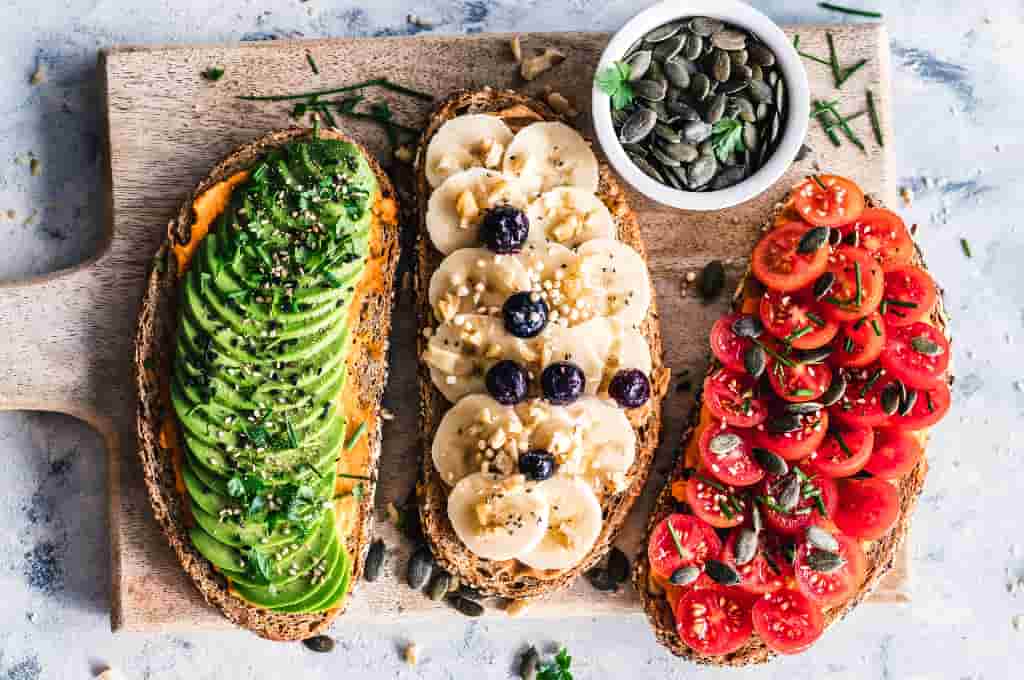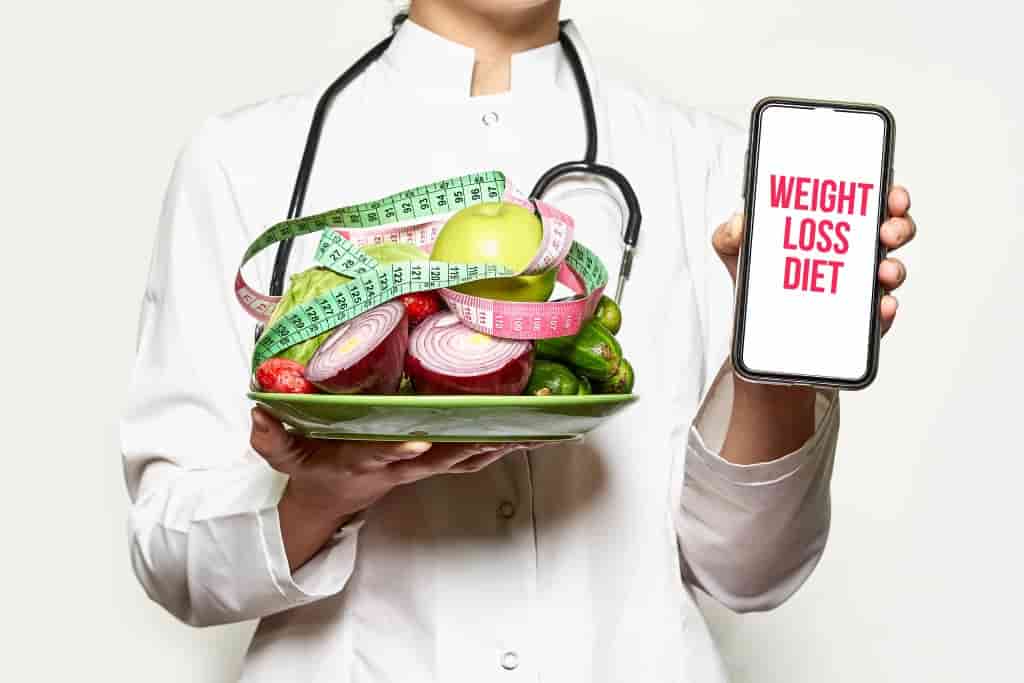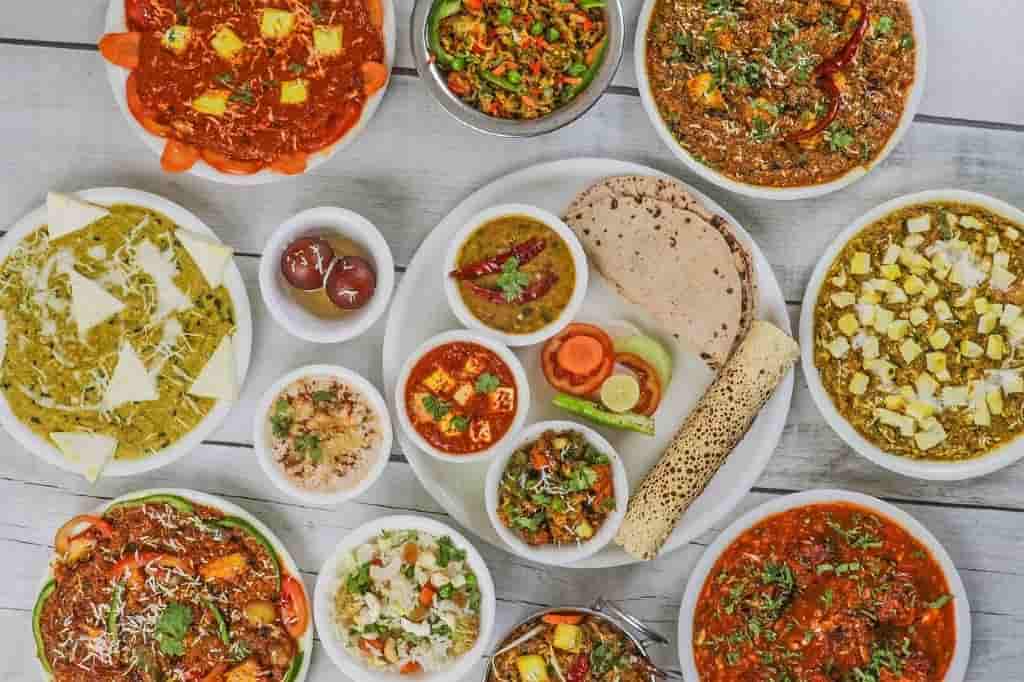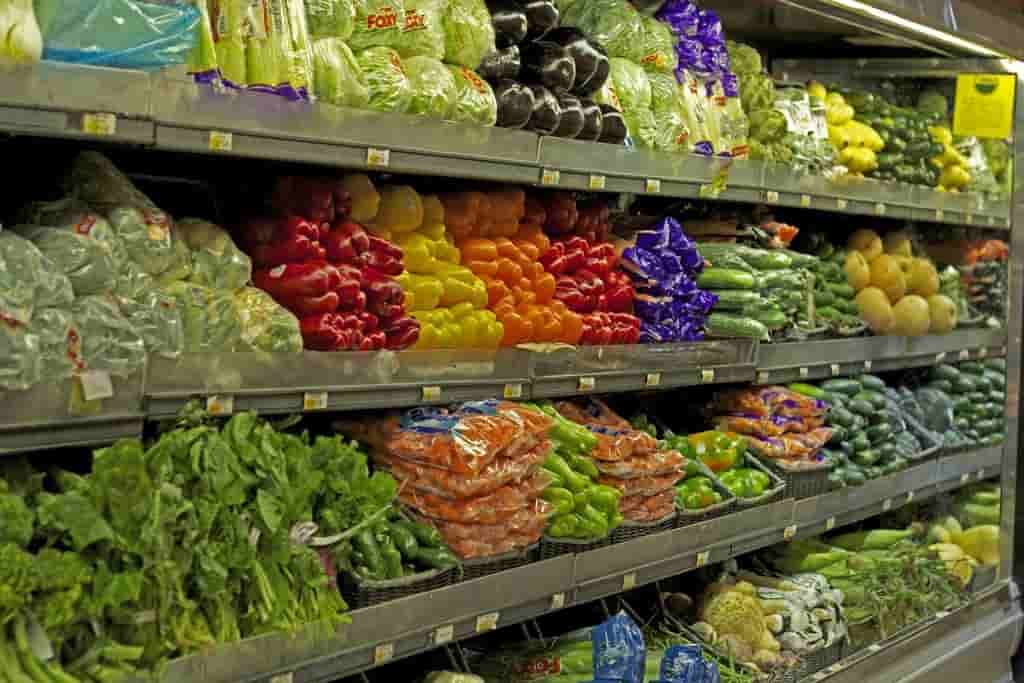9 Myths About Vegetarianism Debunked
- By Seema
- Updated on 25th March, 2025
Being a vegetarian since birth, I have heard many misconceptions and speculations about the vegetarian diet. Despite India having a huge vegetarian population, it’s common to face such annoying questions from people you meet. What do you eat? Where do you get your protein from? Don’t you get tired of eating salads (ghaas-phus) all the time? Isn’t it boring? Isn’t it expensive to be a vegetarian? And it goes on.
When you travel out of India, things get worse. People are not clear about what is considered a vegetarian diet, so many myths surround the health implications of vegetarianism. Following a plant-based diet is becoming increasingly popular and is now synonymous with healthy eating. More and more people are reducing their meat intake. As many meat-eaters are seriously contemplating making a lifestyle change to a plant-based diet, it’s time to tackle a few of the popular myths. Before you jump on the bandwagon or decide to stick to being a non-vegetarian, go through the article. It will help clear all your doubts and debunk many myths that surround a vegetarian diet.
Myth 1: Vegetarians and Vegans are the same
People often consider vegetarianism and veganism the same, but there is a significant difference between the two. The vegetarian diet cuts out all sorts of meat, fish, and eggs from their diet. However, with changing times, varying degrees of vegetarians have evolved. People have made changes according to their lifestyles, and many have started eating eggs – they are also called eggetarians. Pescatarians and vegetarians are very different – vegetarians do NOT eat fish. But they eat cheese, ghee, yogurt, and all other milk products. Vegans only eat plant-based products and eliminate all meats, eggs, and animal products from their diet, including milk, cheese, butter, and honey.

Myth 2: Vegetarians suffer from nutritional deficiency
This is a myth. A vegetarian diet is a wholesome diet and provides all the required nutrients if you eat right. Nuts, quinoa, oats, dairy products, legumes, tofu, seeds, and even vegetables (asparagus, broccoli, spinach, peas, potatoes) are great sources of protein. Green leafy vegetables (spinach, kale, fenugreek), tofu, nuts, lentils, beans, fruits (pomegranate, figs), iron-fortified cereals, etc., are rich in iron. Plant food contains Vitamin C, which helps in the absorption of iron. Dairy products and dry fruits are still the easiest and best available sources of calcium. Citrus fruits, vegetables, and dairy products fulfill all your Vitamin needs. The required fiber intake can only be provided with plant food. If you are eating a balanced vegetarian diet, you will not suffer from any deficiency and live a long and healthy life. So, don’t believe this nonsense.
Myth 3: Your workouts will suffer
A meat-free diet doesn’t make you weak. Vegetarian food gives you enough energy, strength, and stamina for your workouts, sports, or any other physical activity you like. Building muscles requires protein, and as discussed above, there is no dearth of protein in vegetarian food. For energy, you need carbohydrates, and vegetarian food is rich in carbs. A well-planned vegetarian diet can meet the nutrient needs of everyone – infants, adolescents, athletes, and pregnant/lactating women. If you are too much into gymming or sports, you can always use fortified foods and beverages to increase your protein intake. Countless athletes & sportsmen are vegetarians/vegans and are still on top of their game. Just put some time & effort into planning your meals, and you are good to go.

Myth 4: A Vegetarian diet means weight loss
Sadly, this is also not true. Lots of vegetarians are obese. Vegetarian food limits your unhealthy food options but doesn’t eliminate them completely. There are endless junk food options for vegetarians, such as fries, pizza, burgers, cookies, desserts, and other processed/pre-packaged food. Switching to vegetarianism will not guarantee weight loss or a healthy lifestyle. Unless you replace your meat intake with healthy vegetarian options, you won’t find any significant reduction in your weight. However, if you focus on eating healthy, fiber-filled, and antioxidant-rich veg food, and keep your portions in check, you will be at lower risk of heart disease, obesity, diabetes, and high cholesterol levels.
Myth 5: Vegetarian food is boring and bland.
If you believe this, just visit a vegetarian Indian household. The amazing variety and delicious food will leave you drooling. Vegetarian food is not just about salads, steamed vegetables, and tofu. Vegetables, fruits, grains, legumes, dairy products, nuts, spices, & herbs can be mixed and matched to make countless delicacies having unique flavors, textures, and tastes. Just surf the net and you will be flooded with vegetarian delicacies of every cuisine – Mexican, Italian, Mediterranean, Chinese, Middle Eastern, Japanese, Korean, American, etc. Be creative & adventurous, expand your taste palate, experiment with new cooking styles & recipes, and try new foods from all over the world, and you will realize that there is so much you can do with the veg food options. Vegetarian food is anything but repetitive. It’s tempting, lip-smacking, colorful, fresh, and varied.

Myth 6: Vegetarian food is expensive
I really don’t know what is the basis of this myth. In a restaurant, you would be paying double the price if you order non-veg food. Fruits & vegetables are always cheaper than meat products. If you focus on seasonal greens, the quality and rates will be far superior. Whether you are a veg or non-veg, healthy or organic eating will always cost you more. Vegan and vegetarian food can sometimes be expensive. Vegans have to rely on milk substitutes like almond/soy/oat/coconut milk, vegan cheese, and the like, and such products are pricey. So, let us not get confused between vegetarianism and veganism. Vegetarian food is mostly cheaper than meat-based food options.
Myth 7: Traveling is difficult
This was true a decade ago, especially in places like Russia, Japan, Brazil, Argentina, and Germany. The scenario has changed drastically in recent years. The increasing craze for vegan food has made life much easier for vegetarians. Food joints looking to cash in on the vegan fad have sprouted in all parts of the globe. So, traveling as a vegetarian is no longer an issue, unless you travel to remote places or small villages. Pizzas, pasta, crepes, risotto, soups, salads, side dishes, falafel, hummus, burgers, desserts, smoothies, tacos, burritos, enchiladas, samosas, and quesadillas are a few of the vegetarian dishes that can be found almost everywhere. Even if you can’t find a veg option on the menu, put in a special request, and most restaurants are willing to make changes to suit your dietary requirements. However, if you are very picky and specific, you might face problems finding your desired veg food.

Myth 8: Eating Soya increases the risk of Breast cancer
Soya is a complete vegetable protein. Eating soy foods (like tofu, edamame, and soya milk) is an easy way for vegetarians to increase their protein and calcium intake. This has fueled some rumors that eating soy-based products is hazardous to health. However, there is no convincing evidence to prove that soya causes any sort of cancer. This does not mean that you should rely on one product to fulfill all your nutrient needs. There are many other ways to get protein and calcium in a plant-based diet.
Myth 9: You will get hungry faster
This is quite a baseless misconception. Plants may have a lower calorie density than meat products, but they are high in fiber. Fiber adds bulk to your food and cannot be broken down easily. This helps to increase feelings of fullness and stabilizes sugar levels to prevent cravings. So, if you are consuming fiber-rich products like vegetables, fruits, legumes, and whole grains, you will not get hungry faster. Add the right proportions of protein, carbohydrates, fats, and fiber to your food, and you will be sorted for a few hours.
When your lifestyle and eating habits are different from the majority, a few misconceptions are inevitable. Being veg, vegan, or non-veg is your personal choice. But it is crucial to be aware of the benefits and bane of diet changes so that it does not have any adverse impact on your lifestyle and health.
